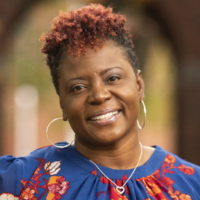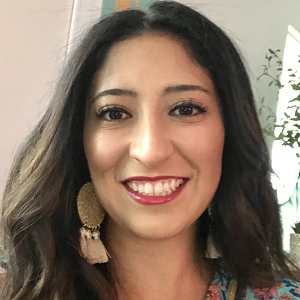Top-Level Takeaways
- Networking is crucial for career advancement, providing opportunities for mentorship and knowledge sharing.
- Building professional networks also can lead to personal satisfaction and stronger interpersonal connections.
- Credit union leaders highlight the importance of actively engaging in professional networks to achieve both career and personal growth.

Recent research from CareerBuilder.com shows the average millennial spends fewer than three years at a job before moving on — a stark change from the days when workers might spend decades or even an entire career with just one firm.
To keep young staff members around for the long haul, senior leaders need to provide ample reasons to stay. Fortunately, networking has never been easier to access — and it’s never been more critical to career longevity. But networking is more than just sharing posts on LinkedIn or swapping business cards at conferences. Today, networking entails planting roots in the movement and cultivating connections beyond the branch.
“Networks help drive professional development by connecting you to individuals with similar and different expertise and experiences,” says Priscilla Awkard, vice president of member advisory centers for Coastal Federal Credit Union ($5.0B, Raleigh, NC). “They provide resources, insights, and opportunities you might otherwise have never encountered.”
They also offer a sense of community — a vital support system to help participants meet challenges while celebrating achievements.
Awkard, for example, belongs to such diverse networks as the African-American Credit Union Coalition (she’s currently its national board secretary), the Cooperative Council of NC, and the Phoenix Club Advisory Board and Black Alumni Network for her alma mater, Elon University.
CU QUICK FACTS
COASTAL FCU
DATA AS OF 03.31.24
ASSETS: $5.0B
MEMBERS: 331,458
BRANCHES: 24
EMPLOYEES: 626
NET WORTH:10.1%
ROA: 0.71%
In the realm of career advancement, networks function as dynamic ecosystems, offering pathways to mentorship, skill enhancement, and exposure to new ideas. This interconnectedness extends beyond the confines of traditional professional settings, resonating deeply with personal aspirations and experiences.
There’s an intentionality to choosing such professional associations, says Stefy Tomlin, vice president of innovation at True Sky Federal Credit Union ($931.7M, Oklahoma City).
“I seek networks that resonate with my personal or professional goals,” Tomlin says. “Often, I discover suitable networks through recommendations from peers who share similar goals and interests.”
Tomlin says she’s currently part of the Filene Research Institute’s i3 Program, the OKC Ecosystem Builders, The Hundred, the Cornerstone League’s Credit Union Young Professionals, and the Worldwide Foundation for Credit Unions’ Global Women’s Leadership Network. She also has started forming connections within the Oklahoma Business Incubator Association.
These groups have not only exposed her to a diverse group of people and new ideas but also provided the opportunity to increase her exposure within the credit union community, widening her circle of influence.
The Dual Nature Of Networking

Then there’s James Hunter, chief diversity, equity, and inclusion officer at New Orleans Firemen’s FCU ($266.9M, New Orleans, LA), which he joined in December 2022 after heading up mortgage lending at Hope FCU in Mississippi and working at national banks.
His affiliations include serving locally on a Habitat for Humanity board in St. Tammany Parish and nationally on the board for Inclusiv. He points to the important role networking plays in activities such as credit union advocacy during the GAC and building a house for Habitat for Humanity.
“When it comes to networking, I try to find things that align with my values,” Hunter says. “Doing that gives me a sense of belonging, of being around like-minded people, of having the ability to be with people of all walks of life. Being in a servant-leadership role gives me goosebumps.”
This dual nature of networking underscores its profound impact — it not only empowers individuals to achieve their aspirations but also fosters a sense of belonging within a broader tapestry of interconnected lives.
An array of experiences and professional development opportunities, combined with drive and passion, has positioned James Hunter for success in the field of DEI. Read more in “A Patchwork Path To Equity And Justice For All.”
Networks Beget Networks
Credit unions are the center around which the professional lives of Awkard, Tomlin, and Hunter revolve, but the workplace connections these leaders have formed supersede the cooperative movement.

“I’ve connected people from my credit union world with people from my sorority world and my college world,” Awkard says. “Networks that are good soil bear fruit that span time and space. If I find one or two people with a common interest to me, that becomes a network.”
And from that good soil can spring new professional opportunities.
Tomlin at True Sky says she cultivated connections with peers across different industries during her time as a graduate student at the University of Oklahoma and continued to maintain those ties even after graduation.
“Eventually, one of my peers extended an invitation to join her organization, which resulted in a new position being created for me,” Tomlin says. “I accepted this opportunity not only for its potential for professional development but also for its financial benefits.”
A Networking Comfort Zone
There are innumerable benefits to cultivating strong networks; there are also plenty of hurdles to doing so. For introverts, for example, connecting like this can feel like a huge rock to push up a hill, Awkard says. But she has a few strategies that might work for them.
“Start small with an easy-to-reach goal, like connecting on LinkedIn with one person,” she says. “Find one-on-one or small group conversations with people that have some type of connection, where you will feel more comfortable. In those settings you don’t always have to speak much. Active listening is just as important.”
After that initial outreach or connection, it’s important to follow-up and check-in regularly, the Coastal executive advises.
CU QUICK FACTS
TRUE SKY FCU
DATA AS OF 03.31.24
ASSETS:931.7M
MEMBERS: 61,581
BRANCHES:16
EMPLOYEES: 196
NET WORTH: 6.6%
ROA: -0.24%
“That’s how you build rapport and relationships,” Awkard says. “It’s so much easier to talk to people you know.”
Tomlin agrees that smaller, more tangible steps are the best way to start a journey of network building.
“My advice is to start small and focus on quality connections,” the True Sky VP says. “Find common ground to initiate conversations.”
Being authentic also is important.
“Embrace your introverted qualities even if that means taking breaks every once in a while to recharge,” Tomlin says.
The True Sky vice president adds that online networks provide many opportunities to interact that could offer a more comfortable environment.
Hunter at New Orleans Firemen’s adds that it’s not necessary to be gregarious to benefit from networks.
“You don’t have to be an extrovert to network successfully,” he says. “Just don’t be afraid to take part in what might be a life-changing experience by being a person in a shell. It does you no good.”
Stay Or Go?
The emotional component is integral to any network and aligning them with personal values can be as important as aligning them with professional goals.
CU QUICK FACTS
NEW ORLEANS FIREMEN’S FCU
DATA AS OF 03.31.24
ASSETS: $266.9M
MEMBERS: 28,916
BRANCHES: 10
EMPLOYEES: 100
NET WORTH: 11.5%
ROA: 0.64%
“The way a network makes me feel is important,” Hunter says. “It’s a two-way street. There was one I became part of that my emotional guidance system told me, ‘This is not what you want.’ That shows in how you respond in your work. I decided to resign from that board. I wasn’t adding value and not really getting any.”
Tomlin, meanwhile, says she tries to ensure a network’s goals align with her own. She also makes sure structure and planning are in place for activities and network mechanisms.
“This provides cadence and enables participants of the network to interact in a more meaningful way,” she says.
Meanwhile, the True Sky vice president says, participants who are not actively engaged in or passionate about the objectives of the network usually reflect the group’s lack of reach and impact.
It could also reflect the changing lives of participants. For those who find themselves in such situation, it might be a cue to cut that network loose.
“You know it’s not worth your time when there is no engagement and limited value,” says Awkard at Coastal. “If your drive and passion for the organization has diminished over time, that’s not always a bad thing. Organizations, like people, are sometimes only there for a season in your life.”